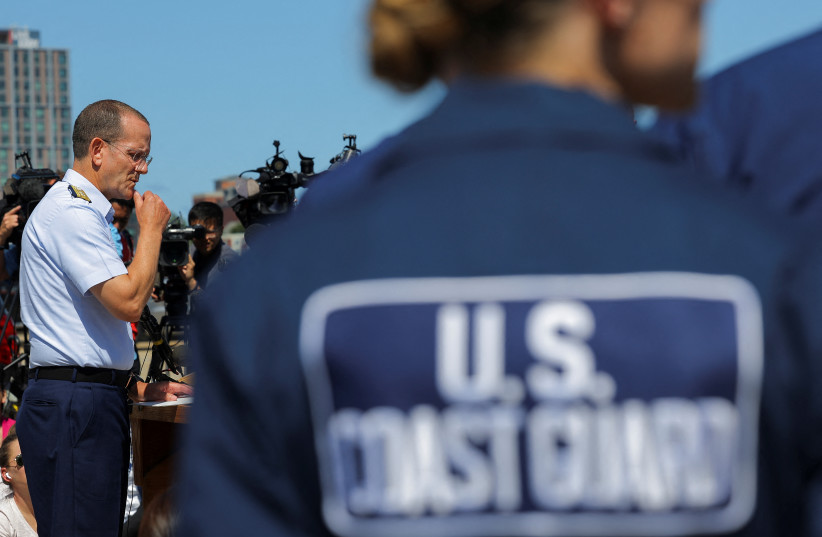In a report done by the Wall Street Journal, the United States Navy has confirmed that sounds "consistent with an implosion" were detected shortly after OceanGate's Titan submersible lost contact on Sunday.
The submarine, which carried five individuals, including British billionaire businessman Hamish Harding and members of Pakistan's wealthy Dawood family, vanished during a dive down to the Titanic wreck on Sunday. The confirmation of the sub's loss came after an extensive search mission.
CBS News reported that a US Navy told them that "the Navy detected what it called an acoustic anomaly consistent with an implosion after the Titan lost contact on Sunday. The official said that the information was shared with the Coast Guard, which used it to narrow down the search area."
During a press conference on Thursday, the Coast Guard stated that they had "listening devices in the water but they didn't detect any catastrophic failures."
CBS reported that the Coast Guard and its partners will continue looking for answers as to what happened to the submersible by analyzing the debris that was found and gathered at the search site.

On Thursday, the deployment of two specialized deep-sea robot vehicles expanded the search farther into the ocean's depths, where immense pressure and pitch-black darkness complicated the mission.
According to a statement made to the BBC by OceanGate Expeditions co-founder Guillermo Söhnlein, he suggests the possibility of a sudden and rapid implosion of the vessel.
"If that's what happened, that's what would have happened four days ago," Söhnlein said.
Safety of the Titan sub was questioned
Questions about the Titan's safety were raised in a 2018 lawsuit filed by OceanGate's former director of marine operations, David Lochridge, who claimed he was fired for voicing concerns that the hull could not withstand extreme depths.
In its own court claim against Lochridge, OceanGate said he refused to accept the lead engineer's assurances and accused Lochridge of improperly sharing confidential information.
The two sides settled the case in November 2018. Neither the company nor Lochridge's attorney has commented on the details of the dispute.
Months prior to the lawsuit, a group of submersible industry leaders wrote to OceanGate warning that the "experimental" approach" to the sub's development could result in "minor to catastrophic" problems.
Aaron Newman, a former Titan passenger who knows some of the missing people, told NBC on Wednesday he felt safe during his dive.
"This is not a Disney ride," he said. "We're going places that very few people have been."
If the Titan managed to return to the surface, it could still be difficult to spot it in the open water, experts said. The submersible is sealed shut with bolts from the outside, making it impossible for those inside to escape without assistance.
If the Titan is on the ocean floor, a rescue effort would be even more challenging because of the massive pressures and total darkness at a depth of more than 2 miles. Titanic expert Tim Maltin said it would be "almost impossible to effect a sub-to-sub rescue" on the seabed.
A French research ship carrying a deep-sea diving robot submersible was expected to arrive later on Wednesday.
The remote-controlled vessel is capable of diving as deep as the Titanic wreck and could help free the submersible if it is stuck, though the robot cannot lift the 21,000-pound (9,525-kg) Titan on its own. The robot could also help hook the sub to a surface ship that is able to lift it, the operator said.
Reuters and The Jerusalem Post Staff have contributed to this report.
